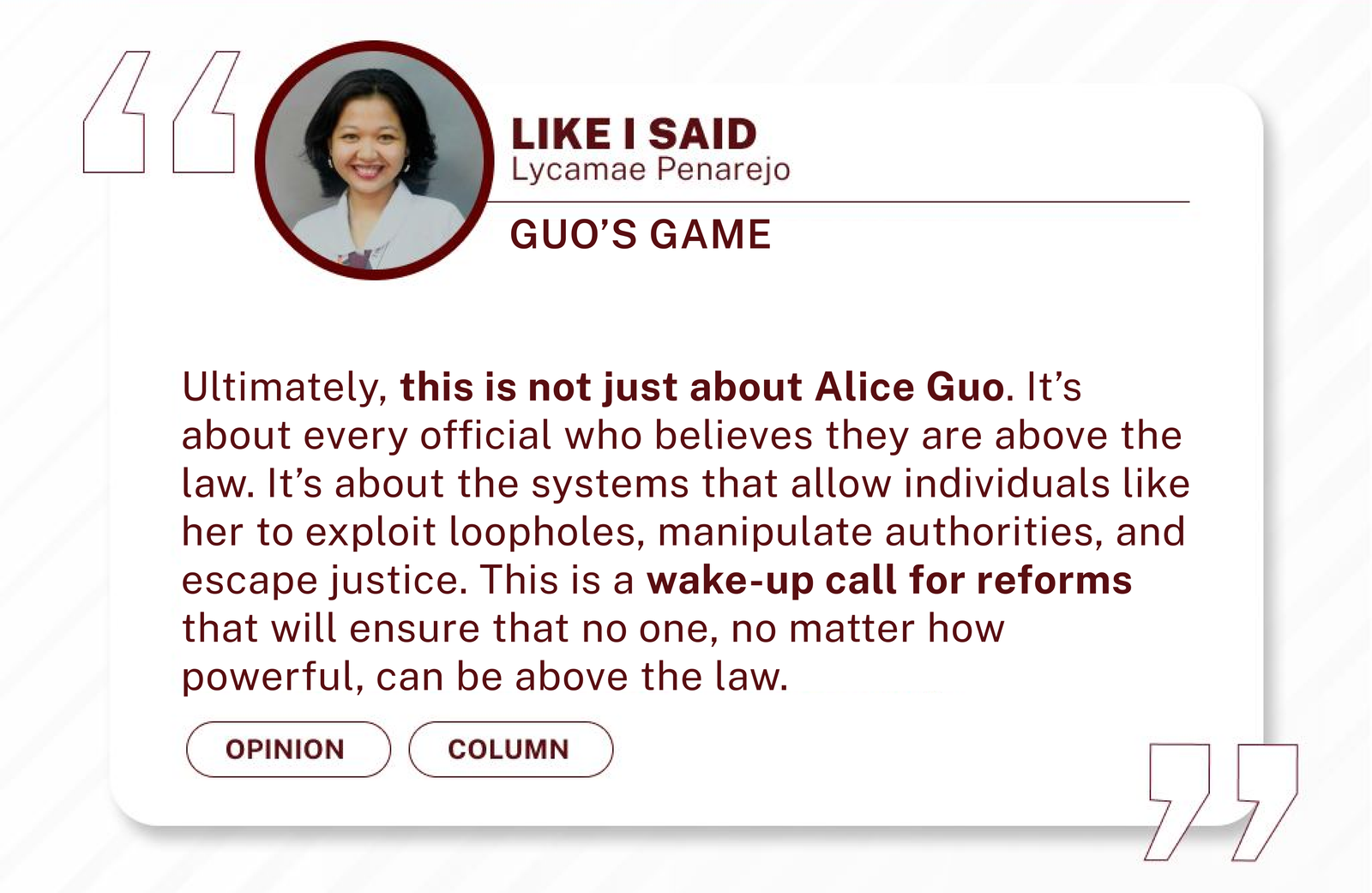Recent arrest of former Bamban, Tarlac Mayor Alice Guo in Indonesia got us thinking about the state of corruption in the Philippines. Guo isn’t just another breaking news—it’s a window into the much bigger issue of how deeply rooted corruption is in the Philippines.
Alice Guo, former mayor of Bamban, who should have been serving the people and community of Tarlac is now caught up in accusations of operating illegal POGO (Philippine Offshore Gaming Operator) activities. While POGO has already tainted the Philippines with its negative impact.
Guo’s story shows just how far-reaching the influence and power of corrupt individuals can be. It makes me wonder: how many more officials are out there like Guo? How many authorities are abusing their power and getting away with it because they have money or connections?
Guo’s ability to escape our border controls isn’t just a mistake, it’s a clear sign that there’s a problem in the justice system. When you have money and power, it seems like you’re above the law and these rules don’t apply to you.
Although it is not fully confirmed whether she fled with the direct help of authorities, her ability to leave the country without raising alarms signals a failure in the system. Whether it’s negligence or complicity, this situation exposes a problem that is beyond a single case.
This case of her calls for transparency and accountability within our law enforcement agencies to ensure that those who should be upholding justice aren’t inadvertently—or intentionally—enabling the escape of high-profile fugitives.
But what really scares me is the idea that Guo might have been heading for the Golden Triangle, a notorious place for organized crime. If it’s true that Philippine crime groups have ties with international syndicates, then we’re dealing with a much bigger problem than we thought. It raises serious concerns about whether our law enforcement and international partnerships are strong enough to deal with this kind of threat.
This entire situation could have been avoided with a stronger justice system in place. If our officials were more accountable, if our checks and balances were enforced without bias, and if corruption wasn’t such an ingrained part of our political landscape, perhaps Guo wouldn’t have had the opportunity to escape in the first place. Her arrest in Indonesia may be a small victory, but it’s also a reminder that much more needs to be done to root out corruption at its core.
Ultimately, this is not just about Alice Guo. It’s about every official who believes they are above the law. It’s about the systems that allow individuals like her to exploit loopholes, manipulate authorities, and escape justice. This is a wake-up call for reforms that will ensure that no one, no matter how powerful, can be above the law.
We, as citizens, cannot afford to let this issue fade into just another news story. We must remain vigilant, demand transparency, and push for systemic change. Only then can we start to break the structures that allow corruption to thrive.
Catching one fugitive is a step in the right direction, but the real challenge lies in preventing others from following the same path. The fight against corruption must be relentless, and it starts with us, our voices, our actions, and our commitment to justice.






